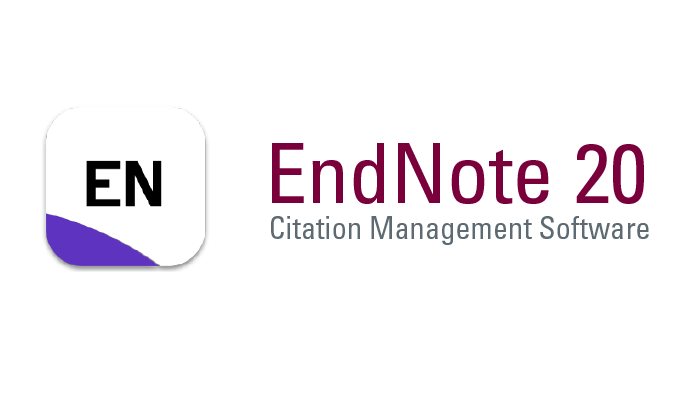THE CONCEPT OF THE ISLAMIC EDUCATION MODEL IN THE TIME OF THE PROPHET SAW AND RECONSTRUCTION FOR THE PRESENT TIME
Konsep Model Pendidikan Islam di Masa Rasulullah SAW dan Rekonstruksi untuk Masa Sekarang
DOI:
https://doi.org/10.47887/amd.v5i1.151Keywords:
Islamic education during the time of Prophet Muhammad, Reconstruction of Islamic education, Methods of Islamic educationAbstract
This study aims to discuss the concept of the Islamic education model during the time of Prophet Muhammad and its reconstruction for the present era. It encompasses Islamic education conducted during two periods, namely the Makkah and Madinah periods, along with the values for reconstructing Islamic education applicable in the modern era. The author employed a literature review method, drawing data from journals, books, and relevant references related to the discussed topic. The study's findings indicate that in reconstructing Islamic education, attention must be given to the harmony of teaching methods. This includes the integration of digital platforms, specialized applications, and artificial intelligence to support learning. Strengthening character education can be achieved through practical learning methods, character-based projects, and collaborative learning. Moreover, holistic Islamic scholarship emphasizes spiritual, intellectual, social, and moral aspects. By adopting the values and methods of Islamic education from the time of Prophet Muhammad and formulating a curriculum aligned with the needs of the current era, it is hoped that contemporary Islamic education can provide a profound and sustainable understanding for learners.
References
Al-Buthi, D. M. (2002). Fiqhus Siroh. Jakarta: Robbani Press.
Al-Mubarakfuri, S. S. (2008). Ar Rahiqul Makhtum. Darussalaam.
Amsina, K. (2020). Integrasi Teknologi Dalam Pembelajaran Implementasi Pembelajaran Ilmu Teknologi Dan Masyarakat. Edueksos : Jurnal Pendidikan Sosial & Ekonomi, 9(2). https://doi.org/10.24235/edueksos.v9i2.7103.
Asdiqoh, S., & Zaman, B. (2020). Implementasi Pendidikan Karakter Pada Siswa Madrasah Aliyah. Insania: Jurnal Pemikiran Alternatif Kependidikan, 25(1), 92–102. https://doi.org/10.24090/insania.v25i1.3510.
Awaluddin, A., & Saputro, A. D. (2020). Rekontruksi Pemikiran Kh. Ahmad Dahlan Dalam Pendidikan Islam Berkemajuan. Muaddib: Studi Kependidikan Dan Keislaman, 1(2), 182–204.
Cahyani, T. (2014). Rekonstruksi Kurikulum Pendidikan Islam Rasulullah Untuk Mengatasi Kenakalan Remaja.
Chaeruddin, B. (2013, Desember 3). Pendidikan Islam Masa Rasulullah Saw. Jurnal Diskursus Islam, 1 No 3, 423- 433.
Musyarif, M. (2019). Sejarah Peradaban Islam (Pra Islam sampai Bani Umayyah). Jakarta: Cv. Kaaffah Learning Center.
Husein, S. (2018). Pola Pendidikan Islam Masa Rasulullah SAW (Kajian Historis Pola Pendidikan Islam Masa Rasulullah Fase Mekkah dan Madinah Serta Konstribusinya Pada Pendidikan Islam Masa Kini).
Istiqomah, E. W. (2022, May). Pendidikan dan Pendidik pada Zaman Nabi Muhammad SAW. Jurnal Ilmu-Ilmu Pendidikan, 2(1).
Karolina, A. (2018). Rekonstruksi Pendidikan Islam Berbasis Pembentukan Karakter: Dari Konsep Menuju Internalisasi Nilai-Nilai Al-Quran. Jurnal Penelitian, 11(2). https://doi.org/10.21043/jupe.v11i2.2841
Kurniawan, B. (2020). Konsep Kurikulum Pendidikan Islam Holistik Telaah Pemikiran Ikhwan As-Shafa. An-Nidzam : Jurnal Manajemen Pendidikan dan Studi Islam, 7(2), 1–15. https://doi.org/10.33507/an-nidzam.v7i2.325
Kurniawati, D. A., & Erwinda, L. (2023). Revitalisasi pendidikan karakter: Multimedia interaktif berbasis articulate storyline sebagai solusi modern. Jurnal EDUCATIO: Jurnal Pendidikan Indonesia, 9(2), 965. https://doi.org/10.29210/1202323308
Nata, A. (2018). Pendidikan Islam Di Era MileniaL. Conciencia, 18(1), 10–28. https://doi.org/10.19109/conciencia.v18i1.2436
Najmuddin, S. D. (2013). Pola Pendidikan Islam Pada Periode Rasulullah Di Mekkah Dan Madinah. LENTERA.
Noor, W. (2014). Rekonstruksi Pendidikan Agama Islam. Qathrunâ, 1(01), Article 01.
Murodi, M. (2013). Dakwah Islam dan Tantangan Masyarakat Qurays. Jakarta: Kencana Prenadamedia Group.
Primarni, A. (2020). Konsep Pendidikan Islam Holistik Dalam Memenangkan Persaingan Di Era Mileneal. Jurnal Dirosah Islamiyah, 1(1), 35–50. https://doi.org/10.47467/jdi.v1i1.61
Umam, M. K. (2018). Rekonstruksi Pendidikan Islam Integrasi Dalam Kerangka Pendidikan Profetik Transformatif. https://doi.org/10.31227/osf.io/vxd9g
Yaumi, M., & Damopolii, M. (2019). Model Integrasi Teknologi Informasi dan Komunikasi dalam Pembelajaran Jarak Jauh. Al-Musannif, 1(2). https://doi.org/10.56324/al-musannif.v1i2.28Yuli Supriani, N. A. (22). Konsep Pendidikan Karakter Dalam Islam. Jurnal Pendidikan dan Konseling, 4(2), 438-445.
Zainuddin, M. (2011). Paradigma Pendidikan Islam Holistik. Ulumuna Jurnal Studi Keislaman.Vol. XV No.1.
Zaman, B. (2019). Urgensi pendidikan karakter yang sesuai dengan falsafah bangsa ndonesia. AL GHAZALI, Jurnal Kajian Pendidikan Islam Dan Studi Islam, 2(1), 16–31. https://www.ejournal.stainupwr.ac.id/index.php/al_ghzali/article/view/101.
Downloads
Published
How to Cite
Issue
Section
License
Copyright (c) 2024 Ria Khasna Mursyada Badrus Zaman

This work is licensed under a Creative Commons Attribution-ShareAlike 4.0 International License.
Authors retain copyright and grant the journal right of first publication and this work is licensed under a Creative Commons Attribution-ShareAlike 4.0 that allows others to share the work with an acknowledgement of the works authorship and initial publication in this journal.
All articles in this journal may be disseminated by listing valid sources and the title of the article should not be omitted. The content of the article is liable to the author.
Authors are able to enter into separate, additional contractual arrangements for the non-exclusive distribution of the journal's published version of the work (e.g., post it to an institutional repository or publish it in a book), with an acknowledgment of its initial publication in this journal.
Authors are permitted and encouraged to post their work online (e.g., in institutional repositories or on their website) prior to and during the submission process, as it can lead to productive exchanges, as well as earlier and greater citation of published work.
In the dissemination of articles by the author must declare the Al-Madaris Jurnal Pendidikan dan Studi Keislaman as the first party to publish the article.














